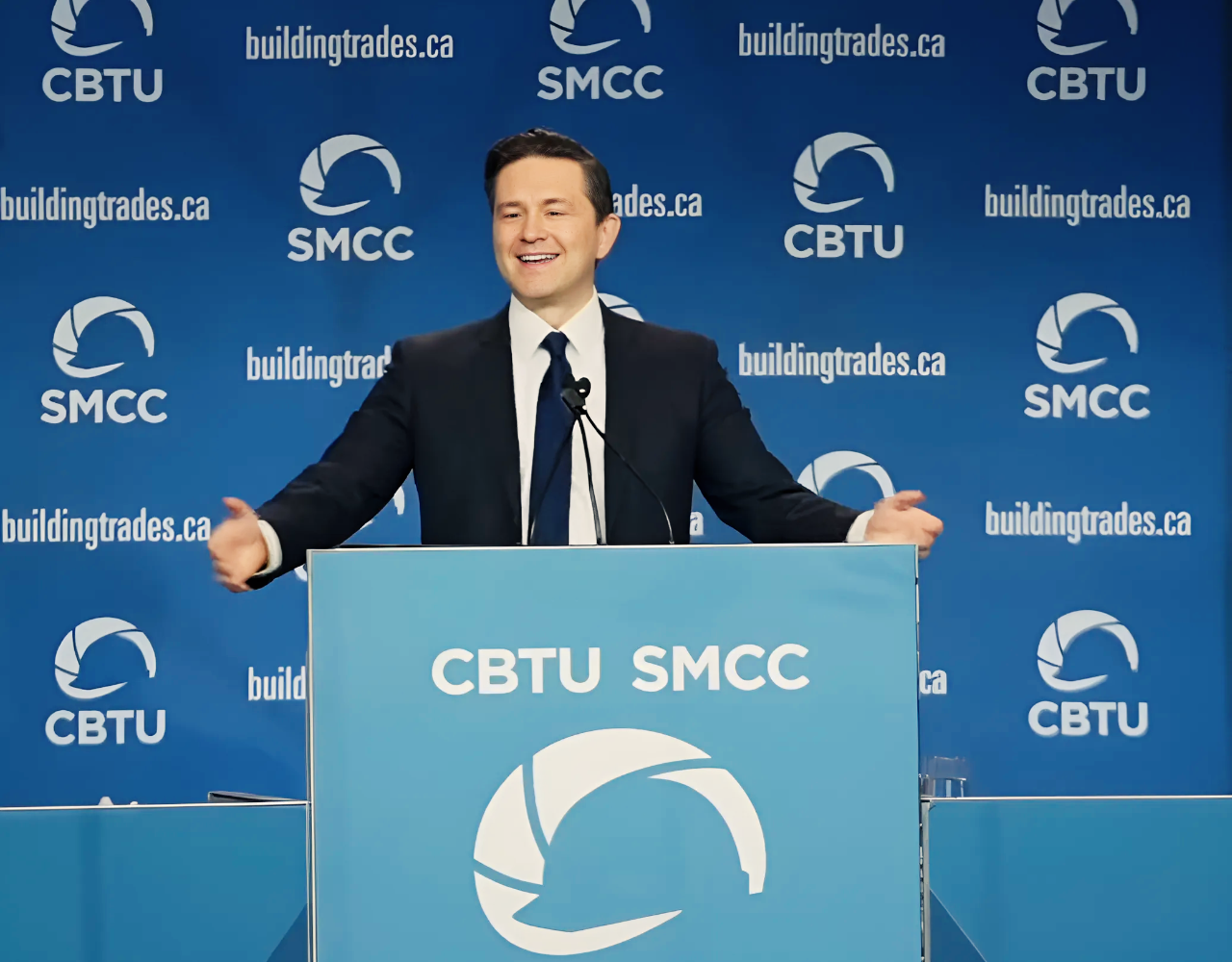In a stirring address at the annual conference of Canada’s Building Trades Unions, Conservative Leader delivered a comprehensive and impassioned critique of the current economic landscape under the Trudeau administration, while outlining a robust plan for reform. His speech, laden with data-driven insights and policy proposals, resonated deeply with the assembled audience of tradespeople and union representatives.
Poilievre’s address followed Prime Minister Trudeau’s speech at the same venue a day prior. Poilievre wasted no time in critiquing what he perceived as excuses rather than substantive policy proposals. “I understand Mr. Trudeau was here yesterday and blaming the world for how badly he’s performed as prime minister,” Poilievre noted, contrasting his own vision for economic reform with Trudeau’s approach.”
Drawing attention to stark economic realities, Poilievre highlighted the paradox of affordability facing many tradespeople. Citing the case of a carpenter unable to afford a home despite building them, he underscored the pressing need for systemic change. “That arithmetic is very simple,” he noted, painting a vivid picture of the struggles faced by ordinary Canadians in an economy marked by soaring housing costs and stagnant wages.
Turning his attention to Prime Minister Trudeau’s recent address at the same venue, Poilievre minced no words in critiquing what he characterized as a litany of excuses. “It sounds like it was more of a therapy session than it was a policy presentation,” he quipped, challenging the narrative of external forces driving Canada’s economic woes.
With meticulous detail, Poilievre outlined a multifaceted plan aimed at addressing key issues plaguing the economy. Central to his agenda is the promise to “axe the tax, build the homes, fix the budget, and stop the crime.” Each component of his plan was elucidated with clarity, grounded in a commitment to fiscal responsibility and tangible outcomes.
A core theme running through Poilievre’s speech was the impact of inflation on the working class. Drawing on economic theory, he highlighted the regressive nature of inflation, wherein the purchasing power of wage earners diminishes while asset holders reap windfalls. “It is a transfer of wealth from the have-nots to the have-yots,” he lamented, underscoring the urgency of addressing this imbalance.
The Conservative leader didn’t shy away from tackling contentious issues, such as immigration and resource development. Poilievre vowed to streamline approval processes for major projects, citing examples of bureaucratic inertia hindering economic progress. “We need to speed up our permitting,” he declared, signaling a departure from the status quo.
Poilievre’s speech culminated in a resounding call to action, urging the assembled tradespeople to reclaim agency in shaping their future. “I want to put you back in charge of your life here in Canada,” he declared, articulating a vision of a smaller government and empowered citizens.
Whether his vision will resonate with a broader electorate remains to be seen, but in the halls of the Building Trades Union conference, Pierre Poilievre had made a compelling case for change.

